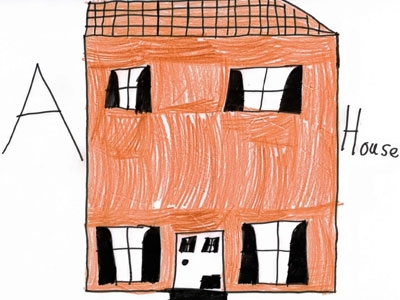
Ofsted has called for an earlier introduction of tougher education standards for residential care workers.
Giving evidence to the education select committee last week, Lisa Pascoe, a principal officer for safeguarding at Ofsted, said the government should be introducing its changes more quickly than 2018.
“We think that’s a long time in children’s lives.”
In July the government unveiled a consultation on detailed plans to overhaul residential children’s care which included changing the law so all existing children’s home staff had to have the necessary qualifications by April 2017. In addition registered managers must have the necessary qualifications prior to being appointed by April 2018.
Jonathan Stanley, chief executive of the Independent Children’s Homes Association (ICHA), told Community Care that moving any more quickly would destabilise the sector.
“The sector is on a cliff edge financially at the moment. Yes, we do need more about registered managers and leadership and qualifications but it needs planning- more content and more delivery, and that needs funding. The market alone can not provide for this when the size of applicants is so low- only 1715 homes.”
There was also debate amongst those giving evidence to the select committee as to the level of qualifications needed.
Councillor Robert Light, deputy chairman of the Local Government Association (LGA) said qualifications should not be put above experience because providing the care children needed was a practical process, not an academic one.
“I’d hate to see really good carers put off from working in children’s homes because of this,” he added.
However, Stanley said the current level 3 diploma was not fit for purpose.
“It is very broad and we need something specific for the type of children who are placed in children’s homes. Specifically an understanding of the impact of trauma, neglect and abuse. We need to be assured that everyone has that understanding.”
He said he personally was in favour of all registered children’s homes managers having a degree as leadership was one of the top three issues that contributed to providing good care in a home.
“But we have to have a delivery mechanism to get them those qualifications and then the continuing professional development and support they will need.”
Those giving evidence agreed that driving up the levels of qualifications in homes was also likely to drive up costs. This increased the risk that larger providers would take over the market as they were better able to absorb such costs.
Out-of-area placements
However, Light said councils would look hard at whether they should be building more children’s homes.
“My own council, Kirklees, has already built new children’s homes because we were spending too much on out-of-area placements. I think we might see more of that in future.”
The government is proposing to tighten up regulations around out-of-area placements ensuring only senior officials will have the authority to place a child far from their home. Placing councils will also be expected to consult with the local area before placing a child in a home.
However, children’s rights director Roger Morgan, said many out-of-area placements were appropriate.
“When we asked children about this 49% felt safer in their out-of-area placement compared with just 6% who felt less safe. There needs to be a higher regard to the fact that many of these children need to have some distance from their home either to remove them from gang issues, the risks from their own family or the temptation they will abscond back to their own family even when they know it’s not a safe thing to do.”
He said children were also doubtful about making a director of children’s service responsible for the decision.
“It’s not that they felt the DCS shouldn’t have a role but it should be more of a monitoring role. Children were clear that only someone who knew a child well should make the decision to place them out of area.”
He added that such a change could also increase the levels of bureaucracy and delays that already hampered decision making for children in care.
Area risk assessments
The government’s plan to ensure an area risk assessment was conducted before any new children’s home could open was also problematic the committee hearing was told.
Pascoe said while Ofsted welcomed area risk assessments she felt there was still a lot of ambiguity about the proposal.
“Risks in an area can change quickly and if an area was deemed too risky for a new home to open, what would the impact be on any existing children’s homes in that area?
“We also think there’s a role here for the LSCB and not just a children’s home provider to do the risk assessment,” she added.


 A trauma-informed approach to social work: practice tips
A trauma-informed approach to social work: practice tips  Problem gambling: how to recognise the warning signs
Problem gambling: how to recognise the warning signs 




 Find out how to develop your emotional resilience with our free downloadable guide
Find out how to develop your emotional resilience with our free downloadable guide  Develop your social work career with Community Care’s Careers and Training Guide
Develop your social work career with Community Care’s Careers and Training Guide  ‘Dear Sajid Javid: please end the inappropriate detention of autistic people and those with learning disabilities’
‘Dear Sajid Javid: please end the inappropriate detention of autistic people and those with learning disabilities’ Ofsted calls for power to scrutinise children’s home groups
Ofsted calls for power to scrutinise children’s home groups Seven in eight commissioners paying below ‘minimum rate for home care’
Seven in eight commissioners paying below ‘minimum rate for home care’
 Facebook
Facebook X
X LinkedIn
LinkedIn Instagram
Instagram
Comments are closed.